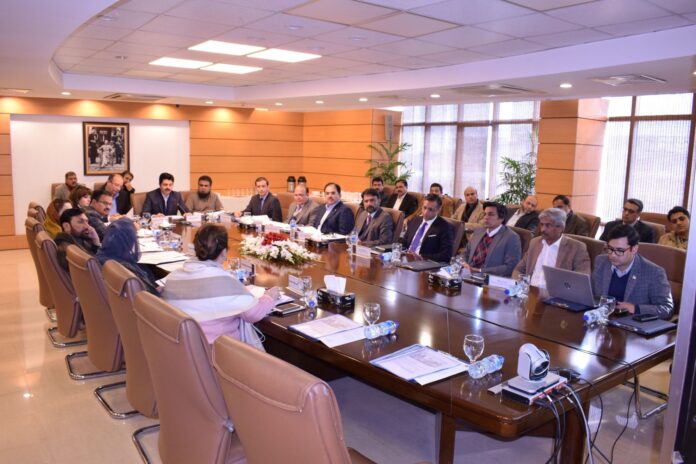ISLAMABAD: Federal Finance and Revenue Secretary Naveed Kamran Baloch on Tuesday briefed the National Assembly’s Committee on Finance, Revenue and Economic Affairs about utilisation of Rs1,200 billion allocations under Prime Minister Covid-19 Relief Package announced by the government to deal with the coronavirus pandemic.
He informed the NA panel that the government had released Rs25 billion to the National Disaster Management Authority (NDMA), while release of Rs50 billion for medical equipment and incentives for workers was under process with the Ministry of Health and NDMA.
The Committee met under the chairmanship of MNA Faiz Ullah at the Parliament house.
The secretary informed that Rs15 billion had been allocated for 61 medical items exempted from withholding tax and additional custom duties besides certain food items including reduction of withholding tax for the Utility Stores Corporation supplies.
He further informed the government had allocated Rs200 billion to provide financial assistance to daily wage workers/employees, however the same would be released after proper identification and screening through filters by the Benazir Income Support Program (BISP).
The government had already disbursed financial assistance to 4.4 million families out of Rs150 billion apportion for vulnerable families and Panagaha’s, Baloch further said and added the government had been given Rs70 billion already in shape of petrol and diesel relief since 25th March this year.
About funding to the Utility Stores Corporation, he said the government had released Rs10 billion for full stock of flour procurement out of Rs50 billion allocated for further subsidy on household items.
The Committee members expressed their grave concerns about the performance of the corporation.
The members were of the stance that USC had only provided subsidy on flour, whereas, the other products were available on full price.
The Finance Secretary informed that the government had allocated Rs280 billion, 100billion and 100billion for payment to farmers regarding procurement of wheat, relief to exporters and relief to SMEs and agriculture sector, respectively.
State Bank of Pakistan (SBP) Governor Reza Baqir briefed the Committee about the measures taken by the central bank to provide relief to the business community during ongoing virus pandemic.
He said SBP had directed the commercial banks for enhancing the date of returns of loans from 90 days to 180 days, adding the bank had also announced a support package of salaries for employees in different entities on lower mark-up.
The SBP governor further informed that the government had brought down its policy rate from 13.25pc to 9pc.
The Committee members gave some suggestions for further strengthening the policies of SBP with regard to the business community in the current scenario.
The Finance Secretary, while responding to a question regarding subtraction from the share of provinces in the National Finance Commission (NFC), categorically denied this impression.
The Committee suggested that the government should give priority to SMEs (medium and small traders/businessmen) while making any policy to facilitate them by providing financial incentives.
The Committee also decided that Dr Sania Nishter, the Special Assistant to the Prime Minister on Special Protection and Poverty Alleviation, might be invited in the next meeting for briefing over disbursement of financial assistance to general public in the country.
Federal Board of Revenue Member Seema Shakeel briefed the Committee about details of Rs100 billion disbursements to the exporters in shape of refunds.
She said to mitigate the impact of the virus outbreak Prime Minister Minster Imran Khan had approved relief package i.e. Rs70 billion for refunds related to FBR and further Rs30 billion DLTL related to the Ministry of Commerce.
Seema further informed that the Custom Duty Drawback processing was earlier manual but to ensure transparency the entire process had been made electronically without any human intervention.
The IBAN of taxpayers were updated online and refunds were directly credited automatically to the claimant’s bank accounts, she added.




